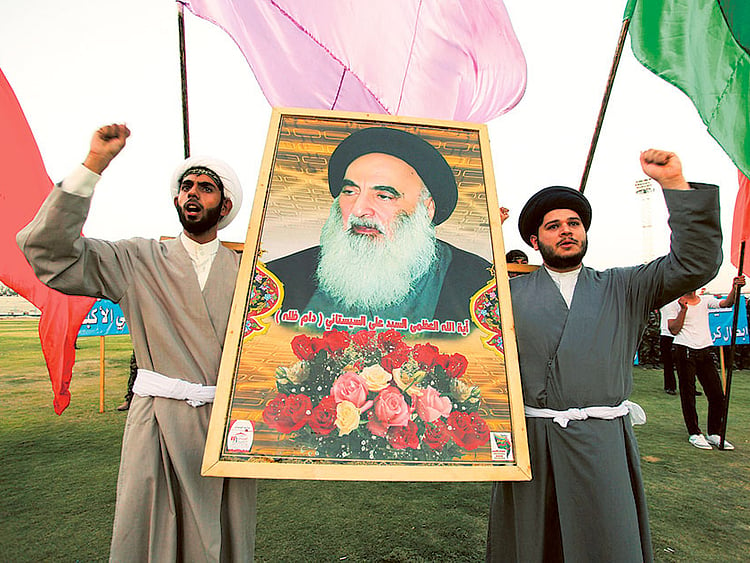Al Sistani condemns US and Iranian attacks on Iraqi territory
European foreign ministers were also meeting in Brussels to discuss regional tensions

Baghdad: Iraq’s most senior Shi’ite Muslim cleric on Friday condemned mutual U.S. and Iranian attacks on Iraqi territory and warned of deteriorating security in the country and the wider Middle East as a result of Washington’s confrontation with Tehran.
European foreign ministers were also meeting in Brussels to find ways to ease the precarious situation that has unfolded in the past week.
In Washington on Thursday, the U.S. House of Representatives voted to stop President Donald Trump from further military action against Iran.
But the Middle East remained tense as Iranian military commanders have threatened more attacks, fuelling worries that the apparent pause in hostilities could be short-lived.
The United States killed Iran’s top military commander, General Qassem Soleimani, in an air strike next to Baghdad airport on Jan. 3.
Iran responded on Wednesday by firing missiles at U.S.-led forces in Iraq. In the aftermath, both sides backed down from intensifying the conflict, the latest stage of a protracted shadow war between the two foes.
Neighbouring Iraq is a frontline of the conflict, caught in a bind as Washington and Tehran are also Baghdad’s main allies and vie for influence there.
No foreign powers should decide Iraq's fate
In a message delivered through a representative speaking at Friday prayers in the holy city of Kerbala, Iraq’s Grand Ayatollah Ali al-Sistani said the series of attacks were a violation of sovereignty and that no foreign powers should be allowed to decide Iraq’s fate.
“The use of over-the-top methods by different sides which possess power and influence ... will only entrench the crisis and prevent a solution,” he said.
“The latest dangerous aggressive acts, which are repeated violations of Iraqi sovereignty, are a part of the deteriorating situation” in the region, he said.
Since the killing of Soleimani, Tehran has stepped up its calls for U.S. forces to leave Iraq, which like Iran is a mainly Muslim Shi’ite nation.
Iranian Supreme Leader Ali Khamenei has said Iran’s retaliatory strikes were not enough and “what is important is ending the corrupting presence of America in the region”.
Analysts said Iran’s focus, for now, would likely be to put more pressure on Iraq’s Shi’ite-led government to keep pressing for a U.S. withdrawal and mobilising Tehran-backed militias in Iraq to harass U.S. forces.
Actions could expected to increase as long as Washington rejects calls to pull out, they said.
Sign up for the Daily Briefing
Get the latest news and updates straight to your inbox
Network Links
GN StoreDownload our app
© Al Nisr Publishing LLC 2026. All rights reserved.